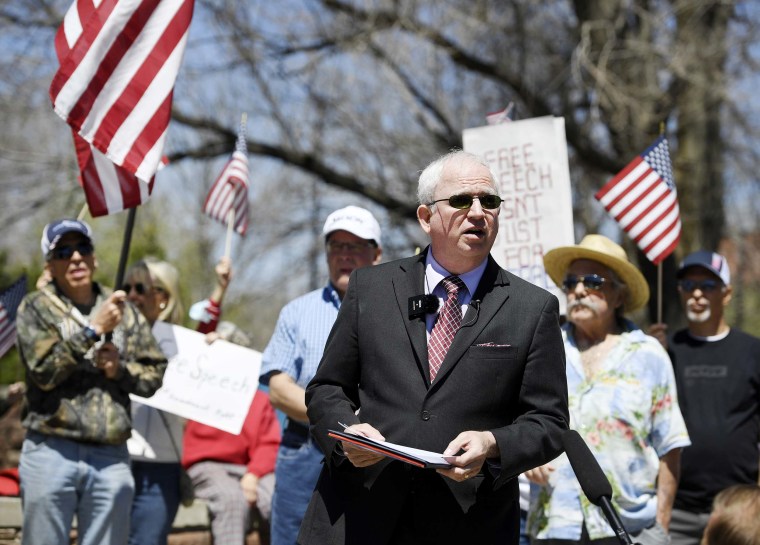By any fair measure, the political world should barely be aware of John Eastman’s existence. Before joining Team Trump — the then-president saw him on Fox News and was impressed — the Republican lawyer was a rather obscure figure.
Even after Donald Trump’s defeat, Eastman, at least on paper, shouldn’t have been especially relevant. He didn’t work in the White House counsel’s office. He wasn’t the attorney general. He had no office in the Justice Department. Eastman was, as MSNBC’s Chris Hayes described him on the air last night, a well-credentialed crank.
But the radical lawyer had one important thing going for him: The sitting president of the United States was eager to buy what Eastman was selling, and everyone around Trump quickly realized that the attorney’s views represented their boss’ views.
To know what Eastman was thinking, advocating, and demanding was to know what the sitting president was thinking, advocating, and demanding. As a matter of law and politics, the lawyer may have been a fringe operator, better suited for a role on a far-right, C-list podcast than a seat in the Oval Office, but in the aftermath of Election Day 2020, Trump didn’t much care.
Why not? Because Eastman had helped concoct an illegal scheme — a scheme Eastman knew to be illegal — that the then-president saw as an avenue to keeping power he hadn’t legitimately earned.
Eastman was not, however, merely a behind-the-scenes author of a ridiculous memo. The Republican lawyer effectively played the role of a lobbyist, advocating on behalf of a plot he recognized as illegal, pleading with officials to go along with his plot, and appearing at a pre-riot Jan. 6 rally to espouse his outlandish ideas to Trump’s radicalized followers.
Told that the execution of his coup scheme would likely lead to civil unrest and violence in American streets, Eastman was indifferent. Trump White House lawyer Eric Herschmann testified to the Jan. 6 committee that he told Eastman that his approach would lead to riots, adding, “And he said words to the effect of, ‘There has been violence in the history of our country, Eric, to protect the democracy or protect the republic.’”
Herschmann told him to hire a criminal defense attorney, because he’d need one. Days later, as NBC News reported, Eastman sent an interesting email.
[T]he committee presented an email where Eastman informs Rudy Giuliani, then Trump’s personal attorney, days after the deadly riot: “Third, I’ve decided that I should be on the pardon list, if that is still in the works.”
Right off the bat, let’s note the obvious fact that Eastman feared prosecution, which was hardly an unreasonable concern given his role in a coup attempt. “The request of a constitutional pardon ... indicates some consciousness of guilt or at least fear of guilt,” Rep. Jamie Raskin, one of the Democratic members of the Jan. 6 committee, said after the hearing.
It also helps explain why, when Eastman agreed to sit down with investigators, he pleaded the Fifth a hundred times.
Let’s also not brush past the specific choice of words: The Republican lawyer didn’t ask for a pardon, so much as he “decided” that his name should simply be added to an existing list. That in turn raises related questions about the existence of such a list, and why Eastman thought he was in a decision-making role.
Finally, The Washington Post briefly mentioned a point that also stood out for me:
The revelation that attorney John Eastman asked Trump adviser Rudy Giuliani to include him on the presidential pardon list reflects what experts have described as an unprecedented level of wheeling and dealing over clemency during the Trump administration. Trump’s transactional approach largely sidelined low-level offenders who had waited years after filing petitions through the Justice Department and elevated those with personal connections to the White House — or the money to pay someone with those connections.
In other words, of course Eastman thought he could simply add his name to a pardon list: Trump World had already corrupted the pardon process to a ridiculous degree, the outgoing president was already handing out pardons based solely on political considerations, so the architect of Trump’s illegal coup plot felt entitled to special treatment.
In the end, however, Eastman did not get the pardon he wanted, probably because he hadn’t been charged with any crimes. That dynamic may soon change.

